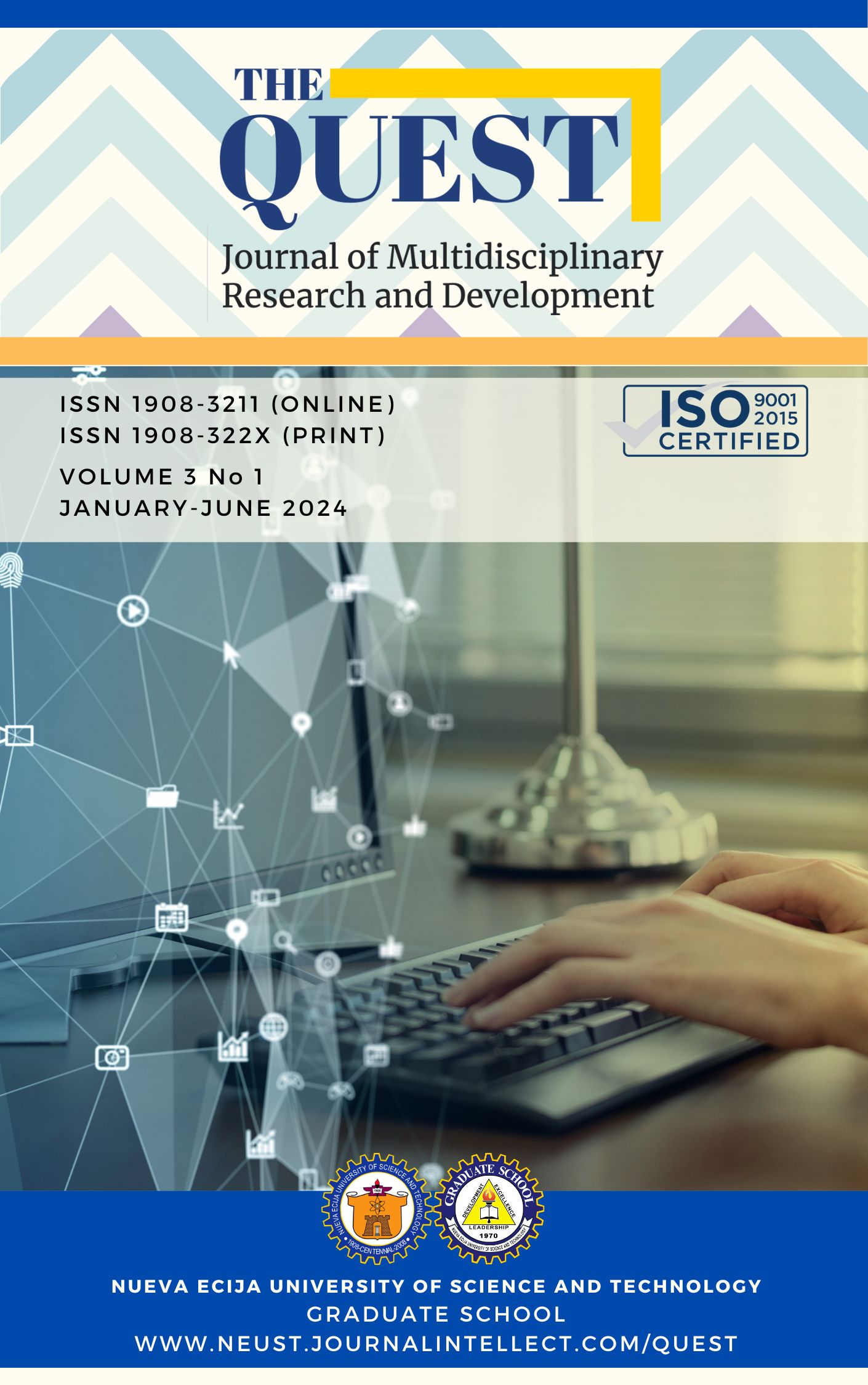Navigating the Intersection: A Phenomenological Exploration of Physical Science Teachers Teaching Biology

Published 06/30/2024
Keywords
- Pedagogical-Content Knowledge,
- Spiral Progression,
- Biology Teachers,
- Physical Science Teachers,
- Didactic
- Orientation to Science ...More
How to Cite
Copyright (c) 2024 The QUEST: Journal of Multidisciplinary Research and Development

This work is licensed under a Creative Commons Attribution-NonCommercial 4.0 International License.
Abstract
This paper presents research on the lived experiences of physical science teachers teaching biology in junior high school. Previous research in teaching science in spiral progression approach identifies teachers‘ challenges and how they are overcoming them. This study adopted a phenomenological research design to provide a broader and in-depth insight into the specialized knowledge and understanding that physical science teachers possess about how to effectively teach biology to students. The findings informed that the orientation of the participants is practically didactic. Moreover, the overall PCK of the physical science teachers in teaching biology was adaptive or able to adjust to comply with the required learning competencies of teaching biology.
References
- Balmaña, M. C. M., & Ligsanan, L. S. A. (2023, November). BEST PRACTICES OF SCIENCE TEACHING AMONG KINDERGARTEN SCHOOLS. In Proceedings of International Interdisciplinary Conference on Sustainable Development Goals (IICSDGs) (Vol. 6, No. 1, pp. 71-78).
- Barnett, J., & Hodson, D. (2001). Pedagogical context knowledge: Toward a fuller understanding of what good science teachers know. Science education, Volume 85(4), pp. 426-453.
- Baxter, J. A., & Lederman, N. G. (1999). Assessment and measurement of pedagogical content knowledge. In Examining pedagogical content knowledge: The construct and its implications for science education, pp. 147-161. Dordrecht: Springer Netherlands.
- Berry, A., Depaepe, F., & Van Driel, J. (2016). Pedagogical content knowledge in teacher education. International Handbook of Teacher Education: Volume 1, pp. 347-386.
- Dahlberg, K., Dahlberg, H., & Nyström, M. (2008). Reflective lifeworld research (2nd ed.). Studentlitteratur.
- Gudmundsdottir, S. (1987b). Pedagogical content knowledge: teachers' ways of knowing. Paper presented at the Annual Meeting of the American Educational Research Association. Washington, D.C. (ERIC Document Reproduction Service NO. ED 290 701)
- K to 12 Most Essential Learning Competencies from the Department of Education – Curriculum and Instruction Strand
- Magnusson, S., Krajcik, L., & Borko, H. (1999). Nature, sources and development of pedagogical content knowledge. In J. Gess-Newsome & N. G. Lederman (Eds.), Examining pedagogical content knowledge, pp. 95-132.
